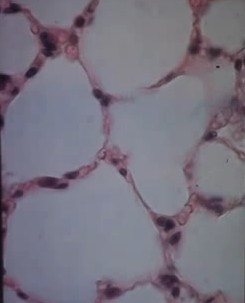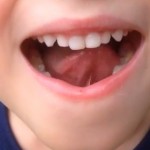Epithelial cells are certain types of cells that occur in the human body and are important to its health and well-being. The skin, different types of organs in the body, as well as varied openings in the body feature the presence of epithelial cells. The bounding or combination of different kinds of epithelial cells leads to the creation of an epithelial tissue.
Epithelial cells in urine may occur due to a variety of different reasons. However, most people suffer from epithelial cells in urine due to an underlying infection, inflammatory conditions, inflammation, or malignancies.
It is known that the urinary system tract is also an opening or an orifice in the human body. Hence, the tract will also contain epithelial cells; any microscopic investigation of a urine specimen will typically show the presence of epithelial cells in urine.

Types of epithelial cells in urine
Different kinds of epithelial cells occur in different areas of the body. The urinary tract however consists of just 3 kinds of epithelial cells, as listed below:
- Squamous epithelial cells. They generally occur at the outer ends of the urethra, in the vagina, and on the genital skin.
- Transitional epithelial cells. They occur in the bladder.
- Renal tubular epithelial cells. They occur in the nephrons of the kidneys
Epithelial cells in urine: Different diagnostic tests
The components of a sample of urine are typically checked via different urine tests conducted in a lab. Urinalysis is one of the most common types of urine tests. It offers a detailed analysis of the urine specimen and helps physicians understand and determine the general health of an individual.
The most common use of a urinalysis is to detect a pre-existing case of urinary tract infection. It can also be used to find out a variety of other health problems, including epithelial cells in urine. The extensive uses of urinalysis is one of the reasons why it is the most oft recommended urine test during a routine health checkup.
Urinalysis is divided into 2 distinctive processes, viz., microscopic investigation and macroscopic examination of the urine specimen. The latter consists of checking the visible features of the urine sample such as its color, cloudiness, clarity, and presence of sediments and/or blood clots, etc. On the other hand, microscopic study involves investigation of the urine sample under a microscope.
A dipstick analysis is another type of common urine test used to determine epithelial cells in urine. It also helps detect the occurrence of blood, nitrites, and proteins in a sample of urine as well as verify its gravity and pH concentration values.
Urinalysis and dipstick analysis may be used to detect the presence of epithelial cells in urine. However, the exact number of epithelial cells in urine can only be calculated after a microscopic analysis of the urine sediment. Sediment investigation is regarded as the final step of a urinalysis.
How is a urinalysis carried out?
The urine specimen is placed in a test tube and then the tube is attached to a spinning machine. The test tube is spun for a few minutes.
The machine stops and the urine sample is seen to be separated into two different sections. The first section occurs at the lower end of the test tube and consists of urine sediments. The second part occurs just above it and consists of clear liquid. The sediment is filtered from the liquid, placed under a microscope, and examined by a lab technician. He/she will check for the presence of epithelial cells in urine, bacteria, crystals, RBCs, WBCs, and other matter in the urine sediment sample.
Epithelial cells in urine: Understanding the results of a urinalysis
After the urine test is over, the lab technician categorizes epithelial cells in urine as per their type and count. The count of epithelial cells in urine is grouped as ‘few’ or ‘many’ or as ‘moderate’ or ‘occasional.’
- The presence of certain kinds of epithelial cells in urine, especially the transitional and squamous types, is regarded as harmless and normal.
- However, if renal tubular epithelial cells are detected during a urinalysis, then it can indicate the occurrence of some severe condition of the kidneys. It is especially true if this type of epithelial cells in urine occurs in large numbers.
- The presence of excess quantities of transitional epithelial cells in urine can also be a sign of some severe underlying disease.
- When squamous epithelial cells in urine occur in excess amounts, then it is an indication of a contaminated urine sample.
Treatment
The detection of epithelial cells in urine mandates a visit to the doctor. The health care provider will verify the quantity and type of epithelial cells detected in urine and then order for additional diagnostic tests to verify and confirm the presence of certain types of illnesses.
- If epithelial cells in urine is caused due to a urinary tract infection, then antibiotics are given to cure it. Pain killers are also prescribed for pain relief.
- Kidney conditions are treated with varied medications. Severe kidney problems such as kidney stones may sometimes require surgical intervention.

I’m usually feeling pains whenever I urinate, I decided to visit my doctor he referred me to a lab where medical check up was conducted and I was diagnosed of having Epith cells and bacterial in my urine that was collected for the screening and the worst part of it is that, I have being taking difference kind of drugs and injections and the pains continuous even when my doctor prescribed Augmentin tablets . What kind medicine can I use please.
better to go with the medicine which is given to u by your doctor and drink plenty of water and start drinking cranberry juice at least 1 glass a day
I have Epithelial Cells in “++(in fair numbers” in test report of my urine test. Also Uric Acid “6.60”.
I have pain in while urine passing. Please suggest me some medicine for relief.
With regards
Saroj Bansal
Mobile NO. : 9671779855
i have been tested with epithelial cells positive and i was give cipro and ibrupain but still no changem what can i do?
I have just been diagnosed of Epith cell but they are been treating me for infection,is it OK or I should stop the treatment. After taking the antibiotics the pains stopped and I’m feeling better,im confused